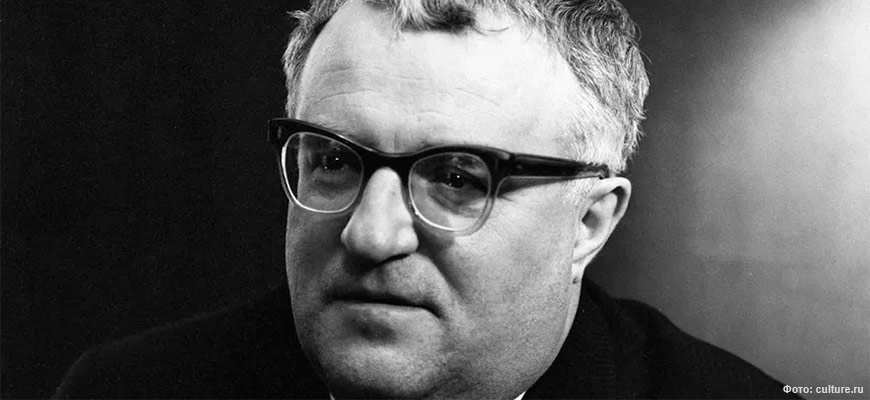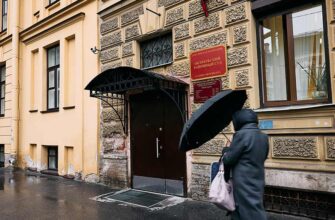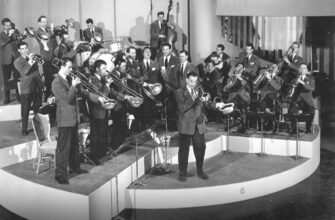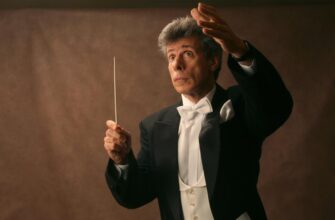On December 16, 2015 was the 100th anniversary since the birth of the outstanding composer, the Honoured Artist of the USSR and the winner of a set of awards, Georgy Sviridov. One of his most known works is the suite “Time, forward!”, the fragment from which has been heard for many years by the audience of the “Time” program. Sviridov is known as the neoromantic composer due to his works that created more lyrical spirit, than drama.
Sviridov was born in the town of Fatezh in the Kursk Governorate of the Russian Empire. In 1931 he moved to Leningrad, and in 1938 he won admission to the conservatory, to Dmitry Shostakovich’s class. The successful graduation from the conservatory in the summer of 1941 opened to the young composer the brilliant opportunities and the ability to work as a professional in his favourite hobby, but these plans were rustrated by war. Later, from 1948 to 1953, Sviridov appeared in disgrace, his compositions weren’t executed and weren’t published, those years he lived only because wrote music for theater and cinema. Then times changed, and already in the mid-fifties Sviridov had become an idol of the Leningrad musical youth as his music had individual handwriting and “talked” in the bright, native, accurately marked Russian language.
Sviridov’s music stayed unknown for a long time in the West where he was considered “too Soviet”, but in Russia his works had grandiose success in critics and listeners for lyrical melodies, scale, masterful instrumentation. Sviridov continued and developed experience of the Russian classics, enriching it with achievements of the 20th century. Sviridov’s creativity combined novelty, identity of musical language, elegance, refined simplicity, deep spirituality and expressiveness. Georgy Sviridov’s music is expressive in fact, but not in a form, the rich inner world is inherent in it, and it is easy for understanding. Sviridov’s music are symphonies and romances, oratorios and cantatas, the operetta and military songs, his music is addressed to Pushkin, Lermontov, Yesenin, Blok, Pasternak, Shakespeare, Byorns’s poetry.
The talent and character of Sviridov had been legendary. He could write a symphony in one night, and then endlessly sharpen every note. He played by heart, absolutely everything in every key, but during rehearsals the musicians had to drink a sedative, because a single mistake could cancel a concert. However, glory and success did not protect him from the blows of fate. In the hungry 90s he lived in poverty and was almost forgotten, and even now there is only a small museum in honour of the composer in his native town. The composer himself said that in the most difficult moments he found salvation in music.
Sviridov’s melodies found almost at once the widespread appreciation, and now they are played both at the best concert venues of the country, and on the streets and in the pedestrian subways.
Sources:
http://dreamiech.ru/blog/2011/12/15/georgy-sviridov/
http://chtoby-pomnili.com/page.php?id=3033
http://www.bbc.com/russian/multimedia/2015/12/151215_georgi_sviridov_archive
http://tvkultura.ru/article/show/article_id/145584/





